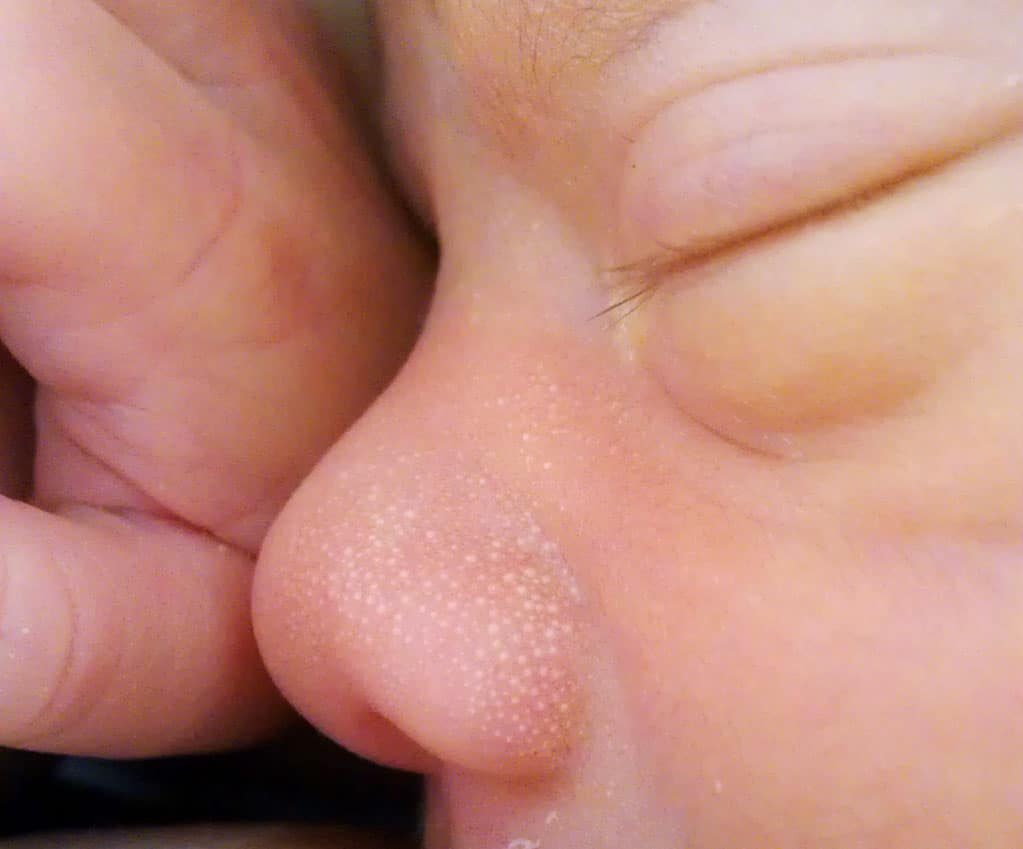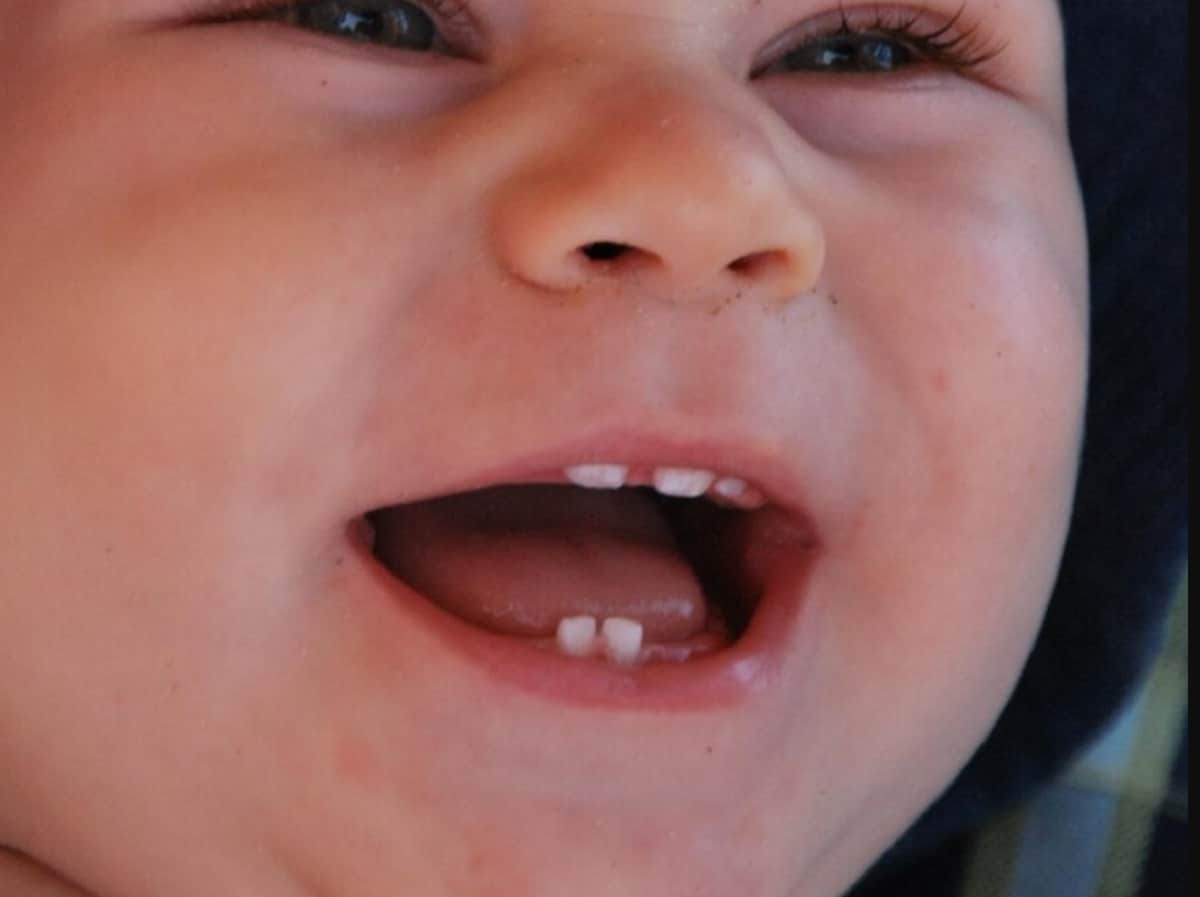
Acne is a very common, benign and transitory skin disorder in most cases. When we are told that a baby has acne, it seems strange to us since it seems to us to be a pathology typical of young people. When it comes to a newborn, it is called neonatal acne.. In pregnancy and through the placenta, the mother gives the baby everything it needs, including hormones. When these stimulate the sebaceous glands, the skin pores become inflamed and close, leaving in their place a series of pimples that we call acne. It is more frequent in men due to the action of male sex hormones.
Do not confuse neonatal acne with infant acne, since the latter is a problem that requires a specialist. Because although they may seem similar things, they are not so much. So it is always convenient to go to our doctor to see for yourself if it is acne or another. We tell you the differences between the two!
Neonatal acne
This type of acne is more common and is said to be the product of all the changes suffered during pregnancy, both by the mother and the baby itself. That is to say that there is no main cause that we can mention and from which this acne appears. But it seems that the hormonal issue is who takes more weight. More than 20% of healthy babies may appear so and in a couple of months you will see how your skin improves remarkably. Do you want to know its main characteristics to be able to differentiate it?

- It does not usually spread beyond 2 or 3 months of life and no treatment is necessary.
- The pimples, which are located mostly on the baby's face (especially on the cheeks and nose), they are not painful.
- They don't sting either, as in the case of grains from bites, they are not contagious.
- Are reduced size.
- Do not save relationship with the mother's diet, neither in pregnancy nor in the lactation period.
- You should wash your face with soap and warm water, because there is nothing specific to prevent it.
In any case, as it is uncomfortable to see our little ones with this type of neonatal acne, it never hurts to consult a dermatologist to follow up on it.
Infant acne
- The causes are not entirely clear. Since on the one hand it is said that it may be due to hormones or because some cream that you apply has given rise to this type of reaction. But we really don't know for sure.
- It appears around 3-6 months of life of the baby and it can be extended up to 2 years.
- The pimples resemble those of adolescent acne
- There are studies that relate it to a pathology of infectious origin produced by the Malasezzia fungus.
- This type of acne increases the chances of acne in the adolescent stage.
- A more aggressive treatment than in the case of neonatal acne.
- A priori you should not worry because in many cases it also fades, although it usually takes a little longer than neonatal acne. Since it can reach 6 months or even 12, in some cases.
- They don't usually leave marks. because it is something superficial of the skin.
So, we insist again, that when in doubt, it is best to see a doctor. Since when it comes to something persistent you can always do new tests in order to rule out another type of disease or problem. Although we already tell you that the latter is very unlikely.

What are the differences between neonatal acne and infant acne?
One of the main differences is in the shape of the grains. Since in the infant they are more similar to the acne that we all know, while in the first they are smaller pimples, as a general rule. On the other hand, we also have to mention that the difference is in the disappearance time. Since the neonatal will leave the skin before the infant. But the neonatal also appears earlier.
It is true that the latter can be a bit more complicated, but it will have a favorable resolution. So you shouldn't worry too much. Remember that the only thing you can do is always keep your face clean, avoiding creams that have not been recommended by your trusted pediatrician. When drying your face, always do it with a clean towel and do not drag it across the skin, but rather use small touches.
Remember that in both cases and to prevent the appearance of this skin disorder, the ideal would be to do without creams on the baby's face so as not to impregnate it with any substance. The pores of the baby's skin must be clean and free of oil. The best is good hygiene on the baby's skin with water and neutral soap. In the event that your baby has any pimples and you want to rule out any pathology, you must consult with your pediatrician.